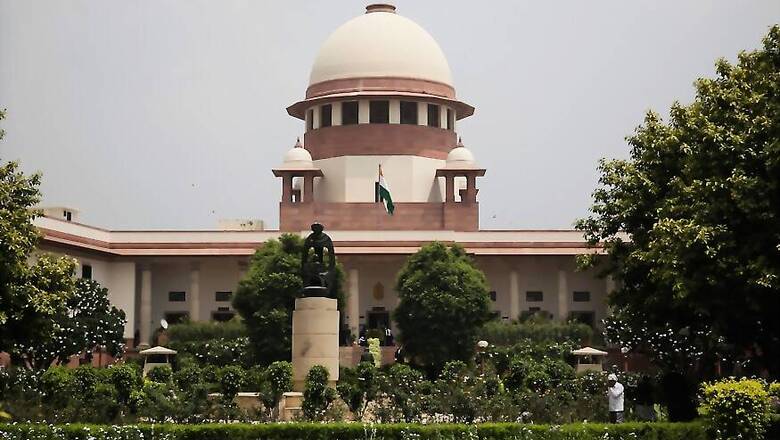
views
New Delhi: A petition was filed on Wednesday in the Supreme Court challenging a Patna High Court order restraining the media from reporting the investigation into the case of Muzaffarpur shelter home where several women were allegedly raped and sexually abused.
The plea, which has sought a stay on the operation of the high court's August 23 order, has alleged that the order was "patently erroneous" as it amounted to imposing a "blanket ban" on the media reporting in the case.
"The high court was not justified in ignoring that the effect of the impugned order was a gross infarction of the fundamental right of the people to know and freedom of the press which is guaranteed under the Constitution," the plea, filed through advocate Fauzia Shakil, said.
The Patna High Court, which has been monitoring the probe into the Muzaffarpur shelter home case, had on August 23 expressed displeasure over the leak of details of the investigation and asked the media to refrain from publishing it as it could be detrimental to the probe.
The incident of alleged rape and sexual assault of women over a period of time in the NGO-run shelter home at Muzaffarpur had come to light after a social audit was conducted by the Mumbai-based Tata Institute of Social Sciences (TISS).
In the plea filed before the apex court, the petitioner, a journalist, has claimed that there was no material before the high court to come to a conclusion that the media reporting may hamper the ongoing investigation in the case.
"The high court committed an error in appreciating that the blanket ban had a chilling effect and is a direct assault on the rights of the public at large as also the rights of the fourth estate under Article 19(1)(a) of the Constitution," the plea has said.
The petitioner has also said that it was because of the pro-active role of the media, the "shocking incident" was exposed and imposing a blanket ban on reporting the probe into the case was "arbitrary".
"The impugned order is erroneous since it ignores that the reporting of follow up affirmative state action against its own establishment has a positive effect on the minds of the public at large and more particularly encourages similarly situated victims, who may still be living harrowing experiences as victims of such undisclosed crimes to come forward and report similar incidents," it said.
The plea has also said that because of media reporting in the Muzaffarpur case, boys at a juvenile home at Arrah in Bihar had gathered courage and complained to their parents about physical and sexual abuse there.
"The impugned order is erroneous since the high court failed to appreciate that news is perishable. A prohibition on the right of the press to report in time amounts to a corresponding prohibition on the right of the public to know in time and this results in an immediate deprivation of the fundamental rights. It also has the effect of reducing news to a mere historical effect," the plea has said.
The apex court had earlier taken cognisance of the incident after a letter was written by Patna-resident Ranvijay Kumar highlighting the issue of repeated interviews of the alleged victims of Muzaffarpur shelter home being published and aired.
Over 30 girls were allegedly raped at the shelter home run by Brajesh Thakur, the chief of the state-funded NGO. The alleged sexual exploitation of the girls was first highlighted in an audit report submitted by TISS to the state's social welfare department.
An FIR was lodged against 11 people, including Thakur, on May 31. The probe has now been taken over by the CBI.
In all, the sexual abuse of 34 of the 42 inmates was confirmed in their medical examination.
The TISS audit report had said that many girls at the shelter home had complained of sexual abuse. A special investigation team was formed to probe the complaints.
The NGO running the shelter home in Muzaffarpur was blacklisted and the girls were shifted to shelter homes in Patna and Madhubani.
Women staff members of the shelter home and Thakur were among those who were arrested by the police in connection with the case.



















Comments
0 comment